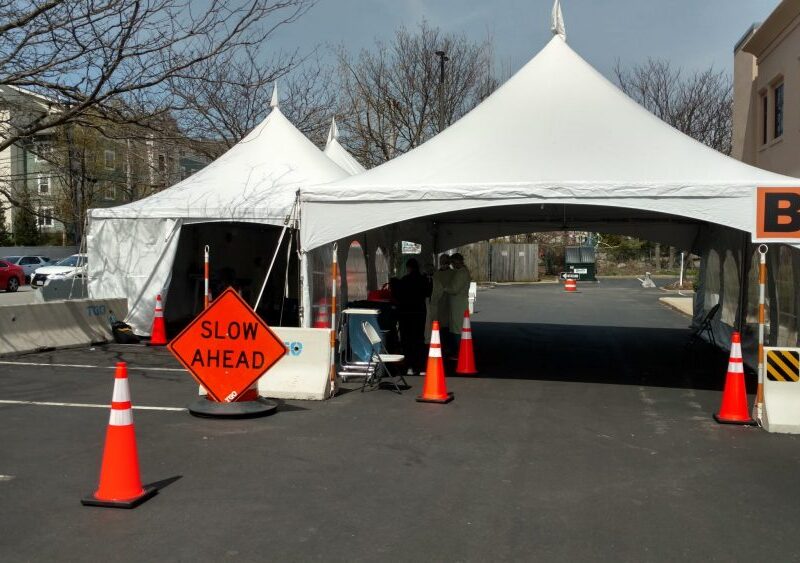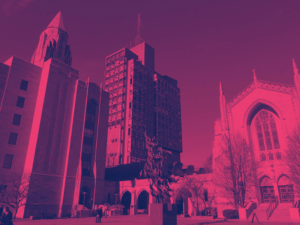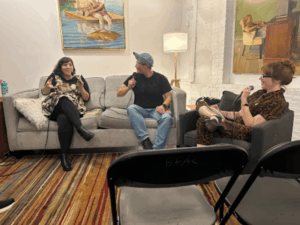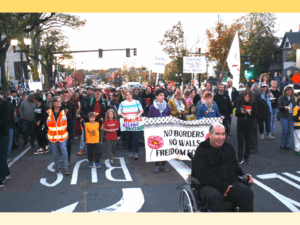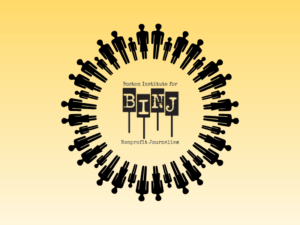 The embedded conversations with Chelsea residents about struggles related to COVID-19 are excerpted from interviews done by the Local Voices Network, which helps “build systems that bring under-heard community voices, perspectives and stories to the center of a healthier public dialogue.”
The embedded conversations with Chelsea residents about struggles related to COVID-19 are excerpted from interviews done by the Local Voices Network, which helps “build systems that bring under-heard community voices, perspectives and stories to the center of a healthier public dialogue.”
In plain speak, they’re getting people to speak plainly, simply by organizing conversations around everything from environmental concerns to COVID and politics, and then transcribing and disseminating them. In Chelsea, roundtables were hosted in coordination with GreenRoots and the Chelsea Collaborative.
The embedded interviews are not directly related to our profile of Dr. Abrego, but rather help provide a picture of the environment that he is working in.
Dr. Jose Abrego has been better positioned than most to experience the epicenter of the coronavirus crisis in Massachusetts.
Abrego, who was born in El Salvador, is the medical director of the Beth Israel Deaconess HealthCare clinic in Chelsea and its ambulatory testing site. He understands how the virus has challenged fellow immigrants in the city of just 40,000 people, which has the state’s highest COVID-19 infection rate. At the time of this writing, there were 2,928 confirmed cases and 152 deaths, according to city data.
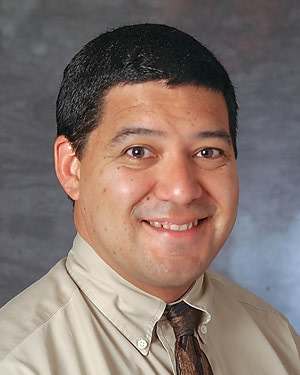
In an interview, Abrego addressed what it felt like to read about Chelsea in the national news. He’s seen individuals with no medical problems become hospitalized and intubated. He’s empathized with residents who have been compelled to work in risky conditions due to their status as essential employees, and through it all still understands why some residents have not gotten tested because of fears over their undocumented status.
It’s been a tough slog, but Abrego described the community as rising to the challenges. Medical professionals have rallied by getting more PPE, increasing testing, and finding unconventional ways of tackling the virus, such as designating quarantine hotels. Abrego reported a spike in cases as recently as mid-June. Yet after a ramped-up response, new cases in Chelsea have dropped dramatically. On June 29, the city reported zero new cases.
It’s much different from the scene in March. Back then, Abrego and his colleagues started seeing large numbers of patients coming in with a flu-like illness.
“It turned out to be COVID-19,” he recalled.
In 20 years of working in Chelsea, Abrego has seen plenty of crises, and understands the socioeconomic factors in play. But COVID-19 shook the community in unprecedented ways.
“Once we got going on testing patients,” Abrego said, “Chelsea was under the highest rates of infection.”
Many Chelsea residents are designated as essential employees in fields such as cleaning services and factory work. Some report to hospitals in various capacities, while many others are employed in health care facilities like nursing homes.
“They have to take public transportation,” Abrego explained. “They come into contact with more people. They can’t really isolate.”
The city’s high population density has also made things harder. “There might be multiple families in one unit,” Abrego said. And of course, there’s the residency status factor.
For “a number of reasons,” he noted, people who “are not documented [are] not likely to look for health care unless it’s critical.” Abrego added, “It’s been a challenge trying to convince people to get medical care. If they don’t get medical care and they do get sick, they’re more likely to spread it to others. It’s a challenge.”
Born in the Salvadoran capital of San Salvador, Abrego understands what it’s like to experience the US as an immigrant. After relocating to and growing up in Miami, he got his first taste of the Boston area when he came here for college. He returned to Florida for medical school at the University of Miami, but Boston stayed on his mind. Abrego returned for a residency at Boston City Hospital in 1993, and has been in Mass ever since.
“I always enjoyed medical care for underserved populations,” he said. “Chelsea gave me an opportunity to take care of a lot of people who are also from Central America.”
Abrego is among multiple providers at Beth Israel Deaconess Chelsea who can converse with Spanish-speaking patients. For other members of the immigrant population, one colleague is Eastern European and speaks multiple languages.
But while the clinic was well prepared for the linguistic needs of patients with COVID-19, like many other medical facilities, it suffered from a lack of PPE early in the coronavirus crisis. As a result, the clinic closed its primary care operation in mid-March, treating patients by tele-medicine. The facility did not reopen until June 8.
As the clinic temporarily cut some physical services, it bolstered other capacities, such as urgent care. Abrego supervised ambulatory testing in an outdoor tent.
“We knew we needed to test as many people as we could,” he said.
At the outset of the crisis, the clinic lacked testing kits and had to limit testing to those who had symptoms, were at risk for hospitalization, and were connected to Beth Israel or its affiliated hospitals.
“As you can imagine, a lot of people were not tested and had symptoms,” Abrego said. “It was difficult to contain the infection.”
One unexpected solution for isolating people was through quarantine hotels in nearby Everett and Revere.
“I think they were very helpful,” Abrego recalled. “The hotels were a great idea.” The physician noted that such accommodations addressed some problems that come with isolation “in a community like Chelsea, with many families in one [housing] unit.” “With a disease as contagious as this one,” he said, “isolation is the key.”
Meanwhile, testing at the clinic expanded. One week into the pandemic, the clinic changed its requirements. People did not have to have a Beth Israel connection. After more test kits arrived a few weeks later, the clinic began testing 100 to 120 people a day.
“Now, we’re testing anybody who needs to be tested, for whatever reason,” Abrego said.
There have been challenges on top of challenges. Organizationally, the clinic has had to designate staff members to get results back to patients and the Department of Public Health. That’s getting easier as positive case numbers drop; still, things are changing in the city and state, and operations like this have to stay nimble and ready for anything. Chelsea is finally having days with zero new reported cases; at the same time, reopening plans are in accelerated gear in several industries, including hospitality and other sectors that locals are likely to work in.
“You wonder if it’s too soon, too fast,” Abrego said. “On the other hand,” he noted, Bay Staters are “limiting the spread of disease” by using social distancing and masks. “In states where individuals are not following these recommendations,” he added, “you see much higher numbers.”
“This is a real, very infectious, very contagious disease,” Abrego warned. “It can make people very sick. Obviously, if you have underlying medical problems, the risk of getting sick is much higher. … Take this seriously. We’re nowhere close to the end of this.
“I know people are tired of having to socially distance themselves, isolate themselves. They need to keep doing this. We don’t want to get into a situation of another spike that overwhelms the healthcare system.”

